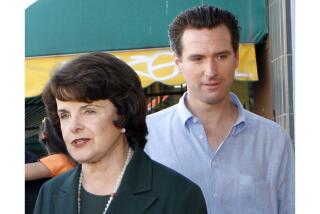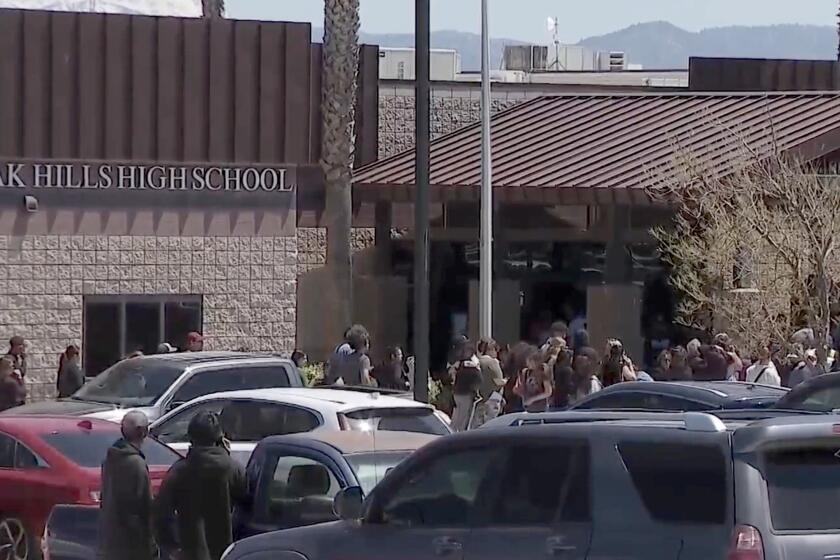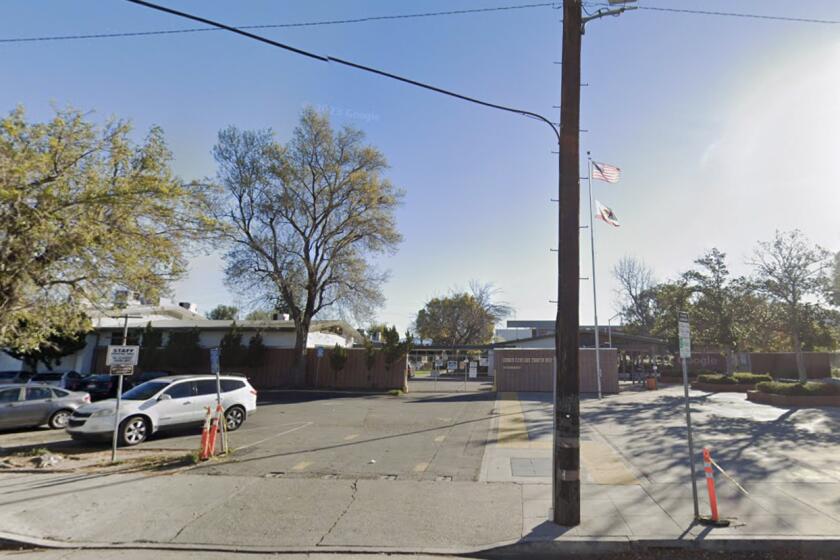Affirmative action non-action still causing waves in Sacramento
SACRAMENTO — When the state Senate took up the issue of affirmative action in late January, it was a relatively tepid affair.
After 20 minutes of polite debate, senators passed a measure that, if approved by voters, would overturn California’s ban on affirmative action in public higher education.
But within weeks, the debate turned fractious. Backlash arose among some Asian Americans who feared their children could lose access to the state’s universities if more places were granted to students from other minority groups.
The measure is now shelved, derailed by the sudden opposition and the majority Democrats’ slow-footed defense of it.
But political ramifications remain.
The controversy has caused unusual friction among the Capitol’s ruling Democrats as lawmakers differ over how to control the fallout. Several legislators cited hard feelings among the party’s Latinos, African Americans and Asian Americans.
State Sen. Holly Mitchell (D-Los Angeles), chairwoman of the Legislative Black Caucus, said she had “deep concerns” about how some of her colleagues backed off the legislation.
The Democrats, who passed the proposal on party lines, are now trying to redirect a debate that threatens their “big tent” of ethnic and racial alliances. Republicans, sensing an inroad to an increasingly powerful group of voters, are keeping the spotlight on the issue.
The debate is rooted in a law voters passed in 1996 that forbids the state to consider race, ethnicity or gender in hiring, contracting or admissions to public institutions of higher education.
A 2003 report by the University of California found that implementing race-neutral admissions policies led to a “substantial decline” in the proportion of black, Latino and American Indian students entering the system’s most selective institutions.
David A. Lehrer, president of Community Advocates, a Los Angeles public affairs group that opposes affirmative action, said that if admissions are meant to more closely reflect the state’s demographics, Asian Americans are the one group that is “obviously disproportionately represented.”
Asians make up 14% of California’s population, according to 2012 data from the U.S. Census Bureau. Last year, Asian Americans were 30% of the University of California’s total enrollment, although supporters of affirmative action say the proportion of Asian American students increased by only a few points after the race-neutral admissions policy took effect.
News of the proposal to reinstate affirmative action spread mostly among the Chinese community through social networking sites such as WeChat, a Chinese version of Facebook.
An online group called the 80-20 Initiative, run by S.B. Woo, a former Democratic lieutenant governor of Delaware who now has no party affiliation, was particularly adept at harnessing its email list to exert pressure on Asian American lawmakers.
It worked. Three Chinese American senators — Sen. Ted Lieu (D-Torrance), Sen. Leland Yee (D-San Francisco) and Sen. Carol Liu (D-La Cañada Flintridge) — who had voted for the measure sent a public letter to its author, Sen. Ed Hernandez (D-West Covina), urging him to delay it to ensure that Asian Americans’ concerns were heard.
In the Assembly, several lawmakers, such as Ed Chau (D-Monterey Park), said they’d oppose the proposal in its existing form, sinking its prospects.
Sen. Ricardo Lara (D-Bell Gardens), chairman of the Latino caucus, said he was “disheartened” by that response.
But within weeks, Hernandez — who said his Facebook page had attracted so much invective about the hot-button issue that he had to shut it down — withdrew his measure.
In the past, he had introduced a number of proposals to roll back the anti-affirmative-action law, none of which were enacted. He said he had never heard objections from Asian Americans worried that they would be harmed.
“I hadn’t thought that would be a constituency that would have a concern,” Hernandez said.
Democrats acknowledge there was little coordination to defend the legislation.
“We need a coalition to advocate for the virtues of diversity and affirmative action in our state,” said Assemblyman Phil Ting (D-San Francisco). “There was no such group…. So misinformation sowed fears not founded in facts.”
Historically, Asian Americans have supported affirmative action. A 2012 survey of California’s Asian American population found that 75% favored such a policy. Supporters of the Hernandez measure say the recent backlash is coming from a small, but noisy, segment of that group.
Democrats say the outrage has been stoked by Republicans, who have been eager to make gains among the 1.6 million Asian American registered voters. More than 42% of those voters are registered or lean Democrat, according to Political Data Inc., a Sacramento firm that tracks voter data. About 25% are registered or lean Republican.
Mei Mei Ho, a Republican strategist and wife of Senate GOP leader Robert Huff of Diamond Bar, said charges of Republican incitement were “laughable” but added that for Asian voters, “maybe this is the time for them to reexamine both parties.”
She is now advising Republican state Senate candidate Peter Kuo, a Taiwanese-born insurance agent who has made affirmative action the central issue of his campaign in a heavily Democratic — and nearly 40% Asian American — East Bay district.
Woo, meanwhile, has used his 80-20 Initiative website to urge Asian Americans to register as Republicans. He says his efforts are not about boosting a particular party but about establishing Asian voters as a political group to be reckoned with.
“We’re playing one party against another,” Woo said. “It’s in the best tradition of democracy.”
Legislative leaders, aiming to turn the debate from the subject of race-conscious college admissions to more politically friendly terrain, have announced they’ll form a task force to examine the state’s diversity outreach efforts and higher education funding.
But the issue won’t go away. Last week, black and Latino lawmakers released a statement declaring that they stand behind Hernandez’s measure, SCA 5, despite the baggage and want to see it revived.
“Let there not be any doubt,” Lara said. “The Black caucus and Latino caucus strongly support SCA 5, and we are committed to put something on the ballot in 2016.”
More to Read
Start your day right
Sign up for Essential California for news, features and recommendations from the L.A. Times and beyond in your inbox six days a week.
You may occasionally receive promotional content from the Los Angeles Times.







